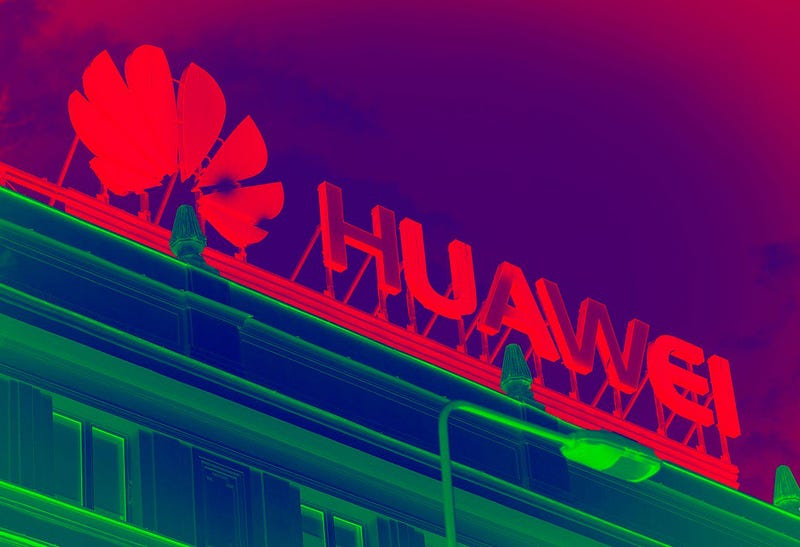Michael K. Spencer
 From surveillance capitalism to the future of the surveillance state, the future of AI and machine intelligence is the churning of data. If data is the new oil so many things are coming to pass including the possibility of that artificial intelligence regulation may be impossible.
From surveillance capitalism to the future of the surveillance state, the future of AI and machine intelligence is the churning of data. If data is the new oil so many things are coming to pass including the possibility of that artificial intelligence regulation may be impossible.
We live in an era of AI hype so unparalleled that it sounds almost like the crypto fraud. Come to think of it, 40% of AI startups might not even be using real AI at all.
Humanity though likely will be faced by an automation crisis of the disruption of jobs. This is because there are so many industries ripe to be impacted by it: retail, transportation, finance, human resources, law, healthcare, and it goes on.
Baidu’s Robin Li Yanhong and Tencent’s Pony Ma Huateng submitted separate proposals on the need for ethical guides on the development of new technology. If China is most likely to lead the next-gen of AI, it’s up to it to establish ethical guidelines that keeps humanity safe. I’m not sure we can say Silicon Valley has done that, creating essentially an internet based on advertising revenue that has used our data just for profit.
The likes of Facebook, Amazon, Microsoft and Google are multi million dollar companies with incredible lobbying to impact the decision making process of politicians, meaning currently techno-capitalism is hijacking democracy, and it’s hard seeing this changing any time soon. These companies depend on huge government contracts to fuel their drive to dominate in creating a world of machine intelligence: the internet, the cloud, enterprise software, everything.
The race for advanced artificial intelligence has indeed already started. A few weeks ago, U.S. President Donald Trump signed an executive order creating the “American AI Initiative,” with which the United States joined other major countries pursuing national strategies for developing AI. Yet the United States looks not quite as impressive as the Chinese Government when it comes to long-term plans about world domination.
The rivalry between China and the United States in years the years to come will show that they need each other to develop artificial intelligence and other advanced technologies in the future, but will also stimulate machine intelligence and deep learning to move faster. If huge multi-national corporations funnels the top talent into accelerating technological innovation, so does good old-fashioned national rivalries.

America will be hard-pressed to maintain is dominance in technology, economic strengths and eventually even AI engineering talent in the next 20 years. Indeed China’s greater consumer base is a huge advantage in learning to predict the future with data better and faster than the U.S.
We all know China’s masses of data give it an edge in AI. We also know that for Huawei not to give its Government “back-door” access is impossible, they must comply with its requests at all times, as does any other Chinese company. There are no mechanisms in place to prevent it.
Artificial intelligence is among the policy objectives in Beijing’s “Made in China 2025” blueprint. China wants to become a global leader in the field by 2030 and now has an edge in terms of academic papers, patents and both cross-border and global AI funding.
Companies like Huawei, Alibaba, Tencent and ByteDance aren’t just technology companies, they are instruments of the state. You could say in 2019, Alphabet, Microsoft, Amazon and Facebook are just as much for the U.S. as well. Thus in the future of AI, it’s not just the deepest pockets that win, it’s those companies with the best access to data and the government connections to remain powerful monopolies that can scale beyond anything we can presently imagine.

It’s naive of the American national defense to assume it can stop Huawei, they will be the 5G leader and likely Germany and Britain will comply with their demands.
Chinese tech companies have been adopting AI in myriad ways, including the curation of news and video content based on an individual’s personal preferences, and catching jaywalkers via facial recognition technology. China’s social credit system can even ban them from traveling, whether it be taking the train or leaving the country.
The US and China are expected to dominate the development of AI in the future because the two countries spend the most in terms of percentage of gross domestic product on research and development and they are the two largest markets in the world, giving the countries a vast amount of potential data to mine. Surveillance Capitalism is thriving for it. The AI-cold wars are the perfect excuse to do whatever to their citizens, for the “good of the country”.
In spite of tensions with the US and its allies, Huawei is rapidly building a suite of AI offerings unmatched by any other company on the planet. If Huawei is an extension of the Chinese Government along with recently Alibaba, you can only imagine the potential of these companies.
The future of AI is our data, everyone’s data on the planet. That is the state of the art today — that you need tons of data to teach a machine. Machine intelligence won’t just swallow our data, but learn to predict our behavior with powerful predictive analytics of everything. Commerce, apps and state surveillance are just the beginning, soon it will be finance, healthcare and even our most intimate choices.
Huawei already thinks the world cannot leave them because they are more advanced. This is the confidence of New China, and it’s only going to become way more powerful on the world-stage. Huawei’s technology road map, especially in the field of artificial intelligence, points to a company that is progressing more rapidly — and on more technology fronts — than any other business in the world, perhaps on par with Amazon & Google combined.
Let me remind our readers China plans to be a world leader in Artificial Intelligence by 2030. This is not fiction but fact, the Chinese Government considers this a huge priority. The real reason why the U.S. is so scared of Huawei is because they know Huawei can beat them on all fronts. Many analysts believe Huawei’s AI strategy that will give it truly unparalleled reach across the whole of the tech landscape.
It may also raise a host of new asecurity issues should China keep choosing to exercise its state sponsored cybersecurity & hacking offensives and IP theft strategy. Either way, Huawei’s technological ubiquity, and the fact that no doubt Chinese companies are ultimately answerable to their government raises some interesting future events.
No comments:
Post a Comment